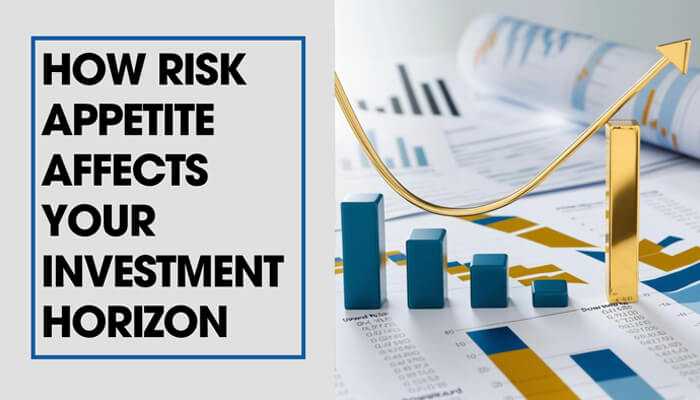“How much risk are you willing to take to achieve your financial goals?” The answer to this question shapes your investment horizon more than any other factor. Your risk appetite, or willingness to face uncertainty, directly influences the types of investments you choose and the timeline for achieving your objectives. Navigating investment decisions often requires a deep understanding of one’s risk tolerance. Firms like Trade 2.0 Avapro play a pivotal role in bridging traders with experts who guide them through the complexities of market behavior and risk assessment. Understanding this critical relationship helps you navigate market fluctuations and align your strategy with your long-term ambitions.
Understanding Your Risk Tolerance
Before diving into how risk appetite influences your investment horizon, it’s crucial to understand what risk tolerance actually means. Essentially, it’s your capacity to emotionally and financially withstand potential losses in your investments. This is a deeply personal factor, shaped by your age, financial situation, life stage, and personal values.
- Age and Life Stage: Younger investors generally have a longer investment horizon, allowing them to take on more risk. They have more time to recover from potential market downturns and can ride out the volatility. Conversely, retirees or those nearing retirement typically have a shorter time horizon and prioritize capital preservation over aggressive growth.
- Financial Situation: Your current financial situation significantly impacts your risk tolerance. If you have substantial savings and a stable income, you can afford to take on more risk. However, if you rely heavily on your investments for short-term income, you’ll likely prefer a more conservative approach.
- Personal Values: Your personal values and investment goals play a crucial role. If you’re investing for long-term goals like retirement or your children’s education, you may be more comfortable with higher risk. On the other hand, if you’re investing for short-term goals like a down payment on a house, you’ll likely prioritize capital preservation and opt for lower-risk investments.
The Impact of Risk Appetite on Investment Horizon
Your risk appetite directly influences your investment horizon and the types of investments you choose.
- High Risk Tolerance: Investors with a high-risk tolerance are comfortable with the possibility of significant losses in exchange for the potential for higher returns. They typically have a longer investment horizon and are willing to invest in more volatile assets such as stocks, high-yield bonds, and emerging market funds. This allows them to ride out market fluctuations and benefit from long-term growth.
- Low Risk Tolerance: Investors with a low-risk tolerance prioritize capital preservation and are uncomfortable with the possibility of significant losses. They typically have a shorter investment horizon and prefer safer investments such as money market accounts, certificates of deposit (CDs), and government bonds. These investments offer lower returns but provide greater stability and lower risk.
- Moderate Risk Tolerance: Most investors fall somewhere in the middle, with a moderate risk tolerance. They are willing to accept some level of risk but prioritize capital preservation to a certain extent. They typically invest in a diversified portfolio that includes a mix of stocks, bonds, and other assets, adjusting the allocation based on their risk tolerance and time horizon.
Building a Diversified Portfolio Aligned with Your Risk Appetite
Regardless of your risk tolerance, diversification is key to building a successful investment portfolio. Diversification involves investing in a variety of assets across different sectors and asset classes. This helps to reduce overall portfolio risk and improve returns over the long term.
- Asset Allocation: Asset allocation refers to how your investment portfolio is divided among different asset classes such as stocks, bonds, and cash. The optimal asset allocation will vary depending on your risk tolerance, time horizon, and investment goals.
- Rebalancing: Market fluctuations can cause your portfolio to drift away from your target asset allocation over time. Rebalancing involves periodically adjusting your portfolio to bring it back in line with your desired asset allocation. This helps to maintain your desired level of risk and improve long-term returns.
The Importance of Regular Review
Your risk tolerance and investment horizon can change over time due to life events, changes in your financial situation, and evolving market conditions. It’s essential to regularly review your investment portfolio and make adjustments as needed.
- Life Events: Major life events such as marriage, having children, or retirement can significantly impact your financial situation and investment goals. These events may require you to reassess your risk tolerance and adjust your investment strategy accordingly.
- Market Conditions: Market conditions are constantly changing. It’s crucial to stay informed about market trends and adjust your investment strategy as needed. This may involve shifting your asset allocation, rebalancing your portfolio, or seeking the advice of a financial advisor.
Conclusion
In conclusion, your risk appetite is the compass that guides your investment journey. Whether you’re a cautious investor or a bold risk-taker, it determines how you approach market volatility and defines the time it takes to reach your financial milestones. By aligning your risk tolerance with your investment horizon, you can build a strategy that not only meets your goals but also suits your comfort level with uncertainty.



